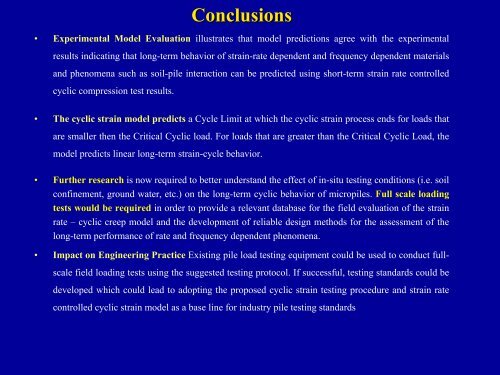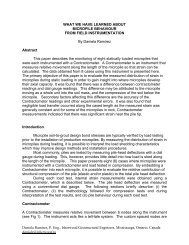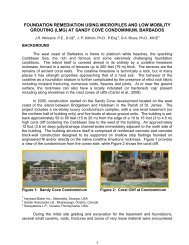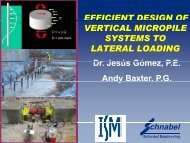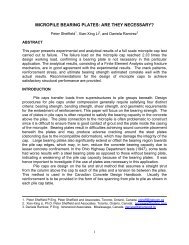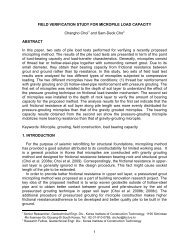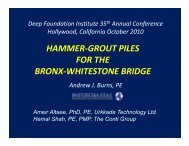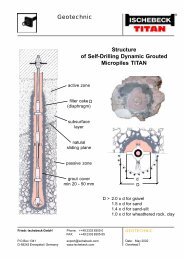Long-Term Cyclic Performance Assessment of Micropile Systems ...
Long-Term Cyclic Performance Assessment of Micropile Systems ...
Long-Term Cyclic Performance Assessment of Micropile Systems ...
Create successful ePaper yourself
Turn your PDF publications into a flip-book with our unique Google optimized e-Paper software.
Conclusions• Experimental Model Evaluation illustrates that model predictions agree with the experimentalresults indicating that long-term behavior <strong>of</strong> strain-rate dependent and frequency dependent materialsand phenomena such as soil-pile interaction can be predicted using short-term strain rate controlledcyclic compression test results.• The cyclic strain model predicts a Cycle Limit at which the cyclic strain process ends for loads thatare smaller then the Critical <strong>Cyclic</strong> load. For loads that are greater than the Critical <strong>Cyclic</strong> Load, themodel predicts linear long-term strain-cycle behavior.• Further research is now required to better understand the effect <strong>of</strong> in-situ testing conditions (i.e. soilconfinement, ground water, etc.) on the long-term cyclic behavior <strong>of</strong> micropiles. Full scale loadingtests would be required in order to provide a relevant database for the field evaluation <strong>of</strong> the strainrate – cyclic creep model and the development <strong>of</strong> reliable design methods for the assessment <strong>of</strong> thelong-term performance <strong>of</strong> rate and frequency dependent phenomena.• Impact on Engineering Practice Existing pile load testing equipment could be used to conduct fullscalefield loading tests using the suggested testing protocol. If successful, testing standards could bedeveloped which could lead to adopting the proposed cyclic strain testing procedure and strain ratecontrolled cyclic strain model as a base line for industry pile testing standards


